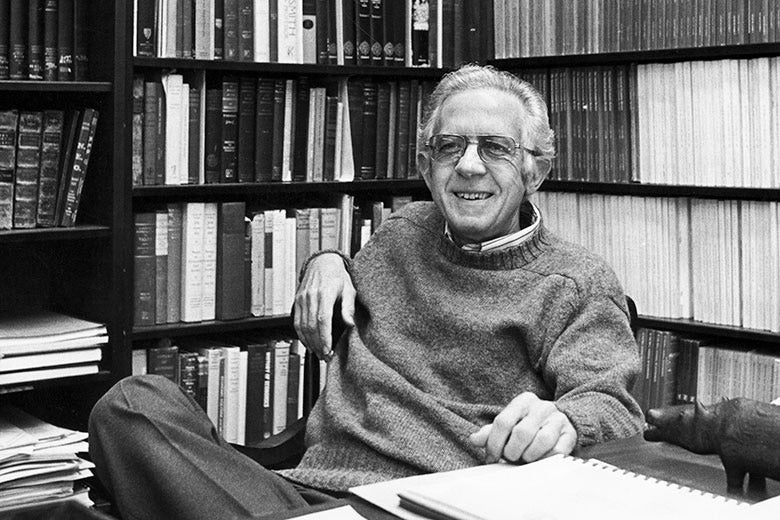Nathan Rosenberg, the Fairleigh S. Dickinson Jr. Professor of Public Policy, Emeritus, in Stanford’s Department of Economics, died Aug. 24 at the Vi at Palo Alto, at the age of 87. Rosenberg had suffered from memory loss for the past several years and was recently under hospice care. Family members surrounded him at the time of his death.

Nathan Rosenberg was most known for his creative and original work on the economic history of technology. (Image credit: Chuck Painter / Stanford News Service)
Nate Rosenberg was born in Passaic, N.J., on Nov. 22, 1927. After earning a bachelor’s degree at Rutgers University and studying as a Fulbright Scholar at Oxford during 1952 to 1954, he received his doctorate in economics from the University of Wisconsin in 1955. He then taught at the universities of Pennsylvania, Purdue and Wisconsin. He was recruited to Stanford in 1974 and directed the Program on Values, Technology and Society from 1976 to 1978. He also served as a sergeant in the U.S Army from 1945 to 1947, and was stationed in Korea.
At Stanford, Rosenberg was the Economics Department Chair from 1983 to 1986. He led the Technology and Economic Growth Program at the Stanford Institute for Economic Policy Research from 1987 until his retirement in 2002.
Rosenberg was most famous for his creative and original work on the economic history of technology, encompassing the diversity of forces influencing technical change and mutual interactions between scientific and technological innovation.
Unlike many other economists, Rosenberg was never afraid to go “Inside the Black Box” (the memorable title of one of his most influential books) to investigate the sources of technological progress. He was the originator of what is now a very large field, the study of the origins of scientific advances not as a first mover but as determined by technology and economic growth as well.
Perhaps his most important ideas were about the role of uncertainty, and its resolution, in technical progress, said a colleague, Timothy Bresnahan: “Here uncertainty does not mean the calculation of calculable risks and rewards, but our profound ignorance of that which has not yet been invented. Before invention, no one knows where technology is going, and that’s the most important reason for encouraging diverse and independent risk-takers in the invention process.”
Inventors of new technology are often not good predictors of how they would be used, Rosenberg told a gathering of economists at Stanford in 1994. The inventors of the telephone, radio, laser, steam engine and VCR didn’t foresee the impact their inventions would have. The inventor of the radio thought it would be used mostly by steamship companies, Rosenberg said.
Rosenberg himself questioned whether society should be using the Internet to order dinner at Pizza Hut. “It’s a sophisticated technology being put to trivial use,” he said in 1994.
Over the course of his career, Rosenberg received many honors and awards. He was an elected member of the American Academy of Arts & Sciences, the American Association for the Advancement of Science and the Swedish Academy of Engineering Sciences. He also received honorary degrees from Lund University and the University of Bologna. When the Society for the History of Technology awarded Rosenberg the Leonardo da Vinci Medal in 1996, the citation described him as having “almost single-handedly changed the way economists and economic historians think about technology and the nature of technological change.”
Rosenberg is survived by his wife, Rina, and four children: Karen Rosenberg of Newark, Del.; Gordon Rosenberg of Los Gatos, Calif.; Jonathan Rosenberg of Los Gatos; and David Rosenberg of New York City, and nine grandchildren. A funeral service was held Aug. 27 at Los Gatos Memorial Park Cemetery. The family encourages gifts to the American Friends of The Hebrew University.